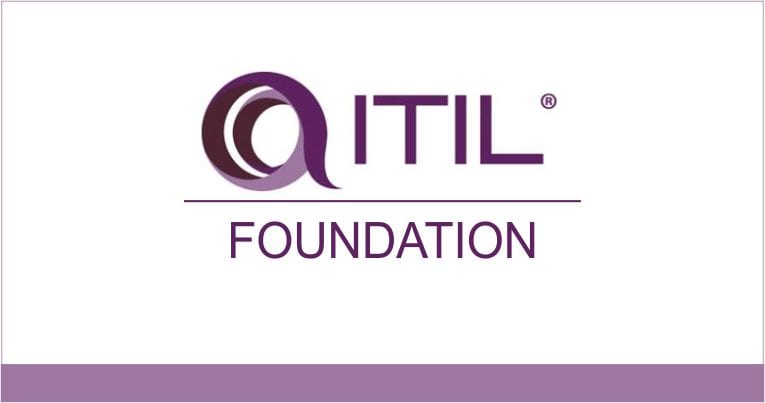ITIL (Information Technology Infrastructure Library) is an excellent framework for IT service management best practices. It’s regarded as one of the most important certifications for IT workers all around the world. It’s also one of the best-paying IT certifications available.
ITIL focuses on the fundamentals that matter to businesses, such as improving IT services, boosting productivity, and reducing costs.
In addition, ITIL certification helps you improve your professional profile.
About the ITIL Certification
Here are the things you should know if you want to pursue the ITIL certification.
There are five levels of ITIL certification:
- ITIL Foundation
- ITIL Intermediate
- ITIL (Information Technology Infrastructure Library) Managing Throughout the Lifecycle
- Expert ITIL certification
- Master ITIL Certification
The ITIL Foundation certification is the initial step toward all other ITIL qualifications and is the most sought after.
While a foundation-level certificate is usually sufficient, persons seeking higher-level or managerial roles should pursue an intermediate-level and an expert-level certification. It is advised that you complete 16.25 hours of training with an accredited training organization (ATO) or any approved institution for foundation-level certification.
Preparing for IITL certification through IITL certification training
The exam has 40 multiple-choice questions that must be completed in 60 minutes. You can use a dictionary and have 75 minutes to complete the exam if you’re replying in a language that isn’t your native tongue. This supervised test has a pass rate of 65%.
ITIL is divided into five volumes, each of which covers a different aspect of IT service management. If these have left you perplexed, you may require study aids to help you narrow down the important things you need to know to pass the exam. In addition, there are numerous online tools and training courses available to assist you in your preparation for IITL training online.
However, be aware that many vendors offer study guides and training courses that are as expensive as, if not more expensive than, the examinations themselves. These can be helpful resources if they are within your budget, but there are other free materials available online.
Official ITIL publications are also pricey, but there are less priced books available from alternative sources. Although these books can be beneficial, the quality of these resources varies greatly.
Look for practise examinations on the internet. These are usually free, and you can take as many as you like. Take notice of the type of multiple-choice questions that are asked on the exam and figure out the best strategy to answer them while taking practise exams. Do not leave any questions unanswered. ITIL does not punish incorrect responses, so you don’t have a fear of losing marks.
About ITIL 4
ITIL v3 has just been updated to ITIL 4. It will assist organizations in navigating the Fourth Industrial Revolution, as it is often known. On a worldwide basis, the pace at which recent breakthroughs are occurring they are disrupting practically every business.
The Fourth Industrial Revolution is characterized by upcoming technologies in domains such as robots, artificial intelligence, nanotechnology, quantum computing, biotechnology, the Internet of Things (IoT), 3D printing, autonomous vehicles, and others. ITIL 4 is the next version, which integrates all of the best features of ITIL as it is currently known while also taking IT and service operations to new heights.
Why is ITIL important?
ITIL ensures that an IT professional is aware of the best practices and solutions in any IT service management situation.
ITIL’s framework helps organizations enhance IT operations regardless of where they are in the service management life cycle, and it enables businesses to save money while improving IT services.
Furthermore, many organizations and individuals regard ITIL as a common language or paradigm, making ITIL-related skills more transferable between companies. ITIL training and certification will benefit those working in IT financial management, continuity management, availability and capacity management, service-level management, and service desks.
ITIL4 Foundation certification costs Rs.19,500 in India. Intermediate ITIL Certification costs Rs. 29,500, ITIL Practitioner costs 29,500 rupees and ITIL Expert costs 29,500 rupees.
Benefits of ITIL Certification for individuals:
- Recognize Expertise
- Recognize Common Terminology
- A Broad Perspective
- Increased Financial Returns
- Increasing Productivity
- Values-Based Working Methodology
- Improve your organizational status
- Think outside the box
- Establish trust
- Low-Risk Effort
ITIL’s framework may feature a comprehensive set of standards, how-tos, and best practices. However, despite of all the ITIL courses, tips, tricks, and tactics available online, nothing can ensure a passing mark other than going down and preparing diligently for the IITL certification exam.



